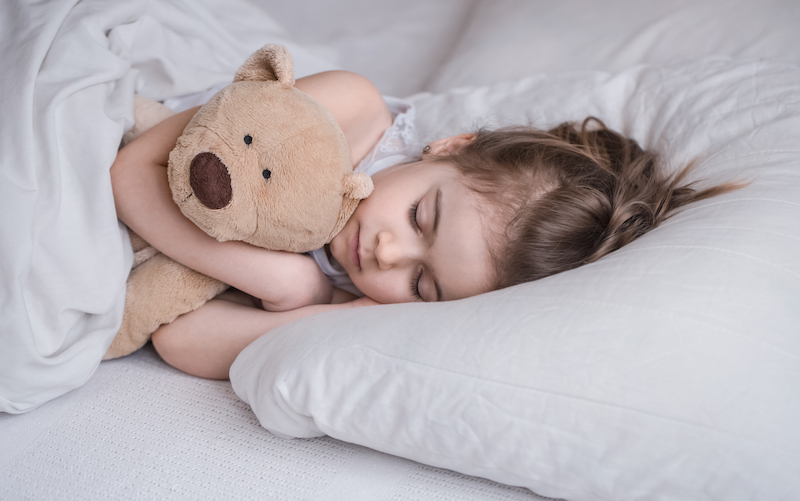
Does your child struggle with sleep? Maybe they sleep, but is it truly good quality sleep? Here are some tips on ways you can work on improving your child’s sleep quality.
Setting up a bedtime routine
One of the best parts of childhood is bedtime routines and it becomes a foundational part of a child’s life and health. It is important to begin the pattern at an early age and have a routine of bath time, night snacks, pajamas, bed, and stories. Having a chat with the child about their day is going to help in clearing their mind and preparing them for sleep.
Relaxing before bedtime
You should promote an environment of physical, mental, and even spiritual relaxation before bed. You can choose musical appreciation hour, breathing exercises, and story time for older children to promote this relaxation. If your child is taking more than 20 minutes to fall asleep, they may be tired still and need to wind down before sleeping.
Keeping regular schedules
Try keeping a regular schedule for bedtime and waking up to a 1–2-hour tolerance every day. This is going to help in setting their circadian rhythm to a regular pattern. Try keeping the schedule on school days, weekends, and vacations.
Keeping naps early and short for older children
Kids usually stop taking naps when they are 3-5 years old. If your child still naps after reaching this age, then try keeping them under 20 minutes and they shouldn’t do it later than the early afternoon. If they take longer naps, they will find it harder to keep their sleep schedule. They will have a hard time falling asleep at night.
Making sure they feel safe at night
If your kid is letting you know that they are scared of the dark, they are sharing with you their feelings of insecurity and you can deal with this issue in a number of ways. You can praise them for being brave and minimizing frightful content they are exposed to. Another good solution is a night light. Try out the different solutions and see which one works for your child.
Checking light and noise in your child’s room
Check whether the noise levels in their bedroom are too high for them to get proper sleep. Keep in mind that electronic screens emit blue light that can affect your sleep. Blue light affects the melatonin balance in the brain and makes it harder for someone to sleep. Reduce lighting an hour before bedtime to improve their quality of sleep.
Below are some tips and points to help in maximizing your child’s sleep quality:
– shutting off all electronic devices at least an hour before going to bed
– Screens shouldn’t be in their rooms as they sleep
– Dimming lights an hour before their bedtime
Avoiding the clock
If the child keeps looking at the clock when they are in bed, it is not going to make things easier for them. Ask them to put the clock somewhere they can’t see as they try sleeping.
Eating the right foods at the right time
The food your child eats is going to have an impact on their sleep. If they are feeling too full or too hungry, they will find it hard to sleep well. This can make it harder for your child to get good sleep. Give your kids a healthy breakfast in the morning so they have energy for their day. Breakfast is the most important meal for your kids.
Getting enough natural light during the day
Natural light is important because it affects the chemical cycles that are responsible for sleep habits. Bright natural light is going to suppress the production of melatonin which helps you sleep. Your child is going to be awake and alert during the day and have quality sleep at night.
Investing in a comfortable mattress
A comfortable mattress is a good investment for both a child and an adult. The right one is going to help someone get enough quality sleep. It also helps in preventing avoidable pains and aches that come from low-quality mattresses. You need to research and find a quality mattress that is going to ensure your child gets quality sleep. These Brooklyn Bedding customers share their reviews – Get a quality mattress.

